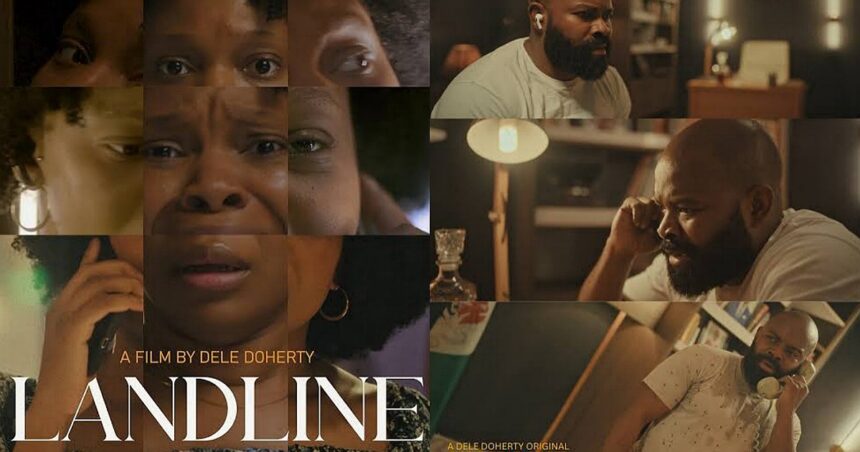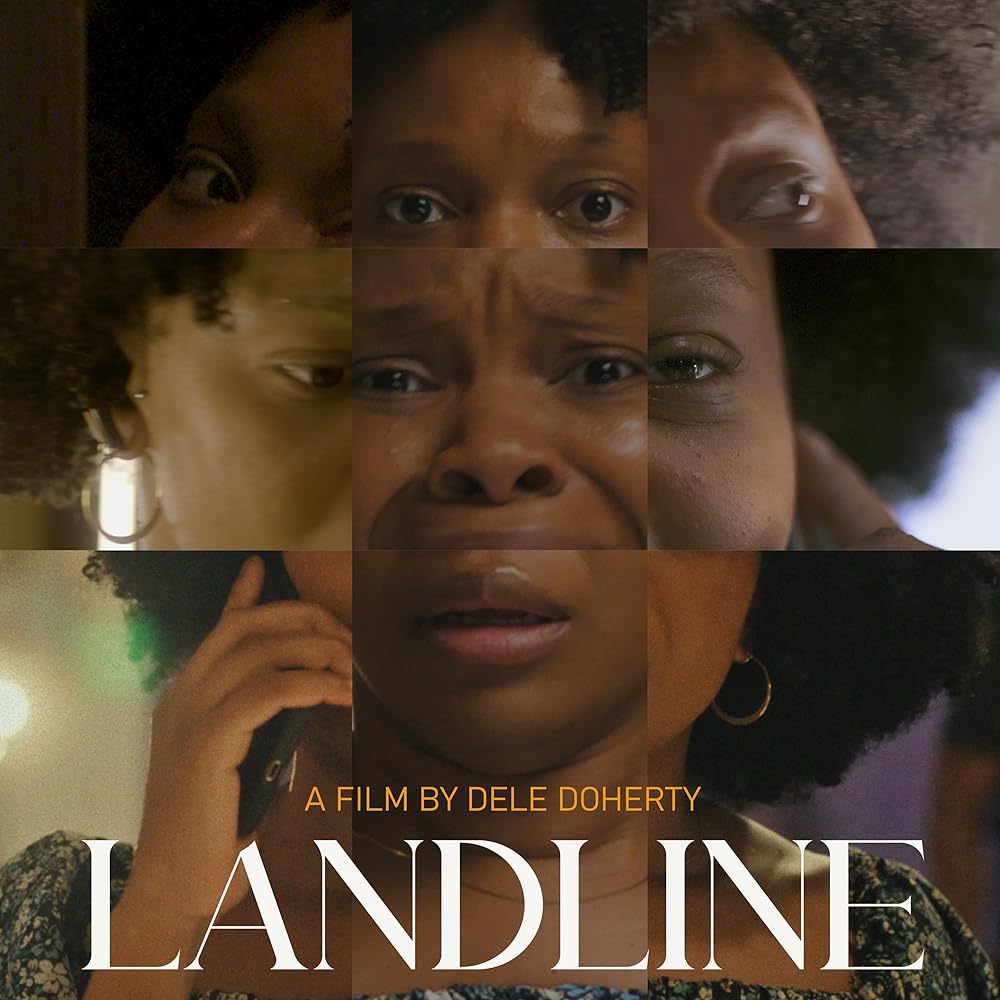Nigerian filmmakers have, in recent times, sought to break free from the monotonous and formulaic storytelling in Nollywood. A new set of burgeoning and bold filmmakers are pushing the limit to new terrain—movies like “Japa”, “The Beads” and now “Landline” all explore a similar narrative about time loops, signaling a willingness of these filmmakers to experiment with new structure and subject matter. But if the execution of some of these movies has a less desired effect, we shouldn’t take away the filmmakers’ bold shift from the stale and redundant films in a profit-driven industry towards more inventive storytelling, which is a commendable and necessary evolution.
Written and directed by Dele Doherty, “Landline”, a psychological thriller, is the director’s long-feature debut from shorts and commercials. In a video shared on Instagram earlier this month, the director talked about the idea of the film was born out of the desire to want to create a film with few characters and locations, which he then pitched to Prime Video in a three-minute proof of concept, which was then accepted by the streaming platform for full production shot in only eight days.
The premise of “Landline” is quite simple yet gripping. Every time Kola, (Gabriel Afolayan) a military sergeant in a secure location, receives a call from his wife, Shalewa( Zainab Balogun also featured in “The Beads”, (2024)another movie about time loop), at 11:11 pm, the doorbell rings in the next minute and Shalewa is murdered. Trapped in a nightmarish time loop, Kola is forced to relive the traumatic experience of her death time and time again. But before he receives his wife’s call, he gets a call from an anonymous caller who tells him about the imminent death of his wife through a dead landline. Together, Kola and the mysterious anonymous caller attempt to alter fate by making Shalewa do different things in order to save her but time proves to be both ally and enemy in this psychological thriller.
The distinctly minimalist approach limiting characters and locations by Dele Doherty hinders “Landline”. This choice restraint and extends to the narrative, offering sparse details that suggests something bigger that’s unexplored. As a result, we’re left with more questions than answers— Who’s the mysterious unknown caller, and why is he helping Kola save his wife? It seems the movie was more interested in its creative choice than in telling a compelling story while the film’s aesthetic choices are intriguing, they often seem to take precedence over narrative clarity, ultimately undermining the emotional and dramatic weight of the story.
In the end, “Landline”, the first long-feature debut of Dele Doherty, marks his audacity and ambition as a filmmaker following his background in shorts and commercials. Filmmakers usually take a safe route in their first major and significant work, but Dele Doherty boldly ventures into a complex territory— a psychological thriller weaved in an intricate narrative device. It’s a risky genre blend for even the most seasoned directors, which even a few will attempt as a debut, and while it has its flaws, it reveals that the filmmaker is unafraid to take risks. This shows a potential, suggesting that Doherty may continue to push the limit of storytelling in his future projects.
Rating: 5/10
















